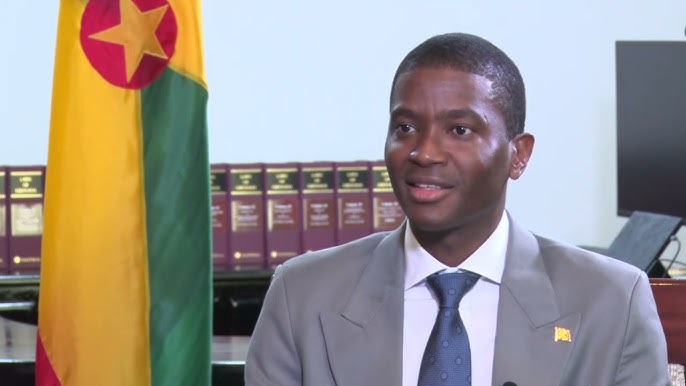In the face of United States president-elect Donald Trump’s threat of mass deportation of illegal aliens, the Caribbean Community (Caricom) is not worried and Chairman Dickon Mitchell is encouraging people to return to their homelands as economic times in the region have changed for the better.
“For Caricom nationals, whatever policy the US implements under President Trump, it will have a minimal disruptive effect, but we will continue to monitor the situation and see how it plays out,” Mitchell, who is also Prime Minister of Grenada, told Stabroek News.
During his election campaign, Trump had stated that under his administration, the immigration policy will include mass deportation for illegal immigrants.
“I don’t know [if] we have a significant portion of illegal immigrants in North America itself. I obviously don’t have the data on that, but I think we don’t have a lot of illegal immigrants we have to necessarily worry about,” he said.
“The Caribbean is a good place to be, so anyone who has the opportunity to come back home, if the policy impacts them, should [come],” he added.
“Guyana is now a thriving economy. Barbados is talking about a shortage of labour. St Vincent is talking about the shortage of labour, and Grenada has a shortage of labour. So if you have persons who are skilled and are looking for jobs, I think we have the capacity to absorb them.
“We had a hurricane at home and there is a shortage of construction labourers in Grenada and many of the other islands. So I don’t think, from Caricom’s perspective, we need to worry about any nationals being sent back to the Caribbean. If they are working and have a skillset, I am sure they will be able to resettle, at least within Caricom.”
When Caricom heads recently met to discuss the impact of crime in the region, Mitchell said that Trump’s much talked about plans did not come up.
He disclosed that the meeting was “strictly about violence and crime as a public health issue. What we discussed was movement of criminals within and outside of Caricom and how we ensure we prevent the negative impacts.”
The Caricom Chair said that while each country is responsible for its own immigration policies, “Our view is that North America, pretty much like the Caribbean, is built on migration,” adding that nonetheless, “It remains to be seen how that policy initiative will play out.”
The BBC has pointed to data out of the United States Department of Homeland Security and the Pew Research Center – a nonpartisan American think tank – which indicate that there are around 11 million undocumented immigrants currently living in the US, a number that has remained relatively stable since 2005. It also reported that most of these are long-term residents and that nearly four-fifths have been in the country for more than a decade.
However, the BBC did note that immigrants who are in the US without legal status have the right to due process, including a court hearing before their removal, while pointing out that most immigrants already in the country enter into the deportation system, not through encounters with Immigration and Customs Enforcement (ICE) agents, but through local law enforcement. However, many of the country’s largest cities and counties have passed laws restricting local police cooperation with ICE.
Most Caricom nationals reside in the tri-state area – New York, New Jersey, and Connecticut – and in Florida.
Mitchell did acknowledge that Caricom recognises that “there are challenges which are in Caricom itself,” as it relates to illegal migration and pointed to the Venezuela situation. “Venezuela has had an impact on Caricom and the movement of people and is something we definitely have to watch.”









